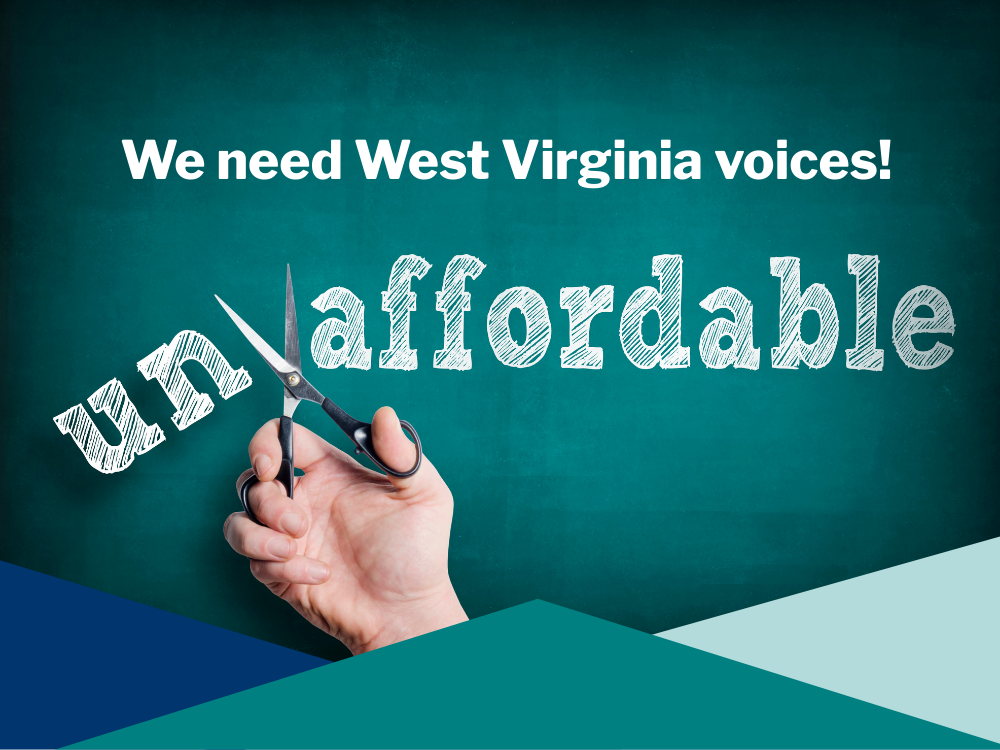- Like
- Digg
- Del
- Tumblr
- VKontakte
- Buffer
- Love This
- Odnoklassniki
- Meneame
- Blogger
- Amazon
- Yahoo Mail
- Gmail
- AOL
- Newsvine
- HackerNews
- Evernote
- MySpace
- Mail.ru
- Viadeo
- Line
- Comments
- Yummly
- SMS
- Viber
- Telegram
- Subscribe
- Skype
- Facebook Messenger
- Kakao
- LiveJournal
- Yammer
- Edgar
- Fintel
- Mix
- Instapaper
- Copy Link
This week we continue our round up of what is happening under the dome (and elsewhere) related to these critical issue areas and actions you can take. Although there are still plenty of bad ideas brewing, this forecast is less dreary.
Courts/Access to Justice – The big West Virginia court news came on Friday, with the announcement that Justice Evan Jenkins is stepping down from the state Supreme Court effective today. As with all judicial vacancies, the Governor will appoint Jenkin’s successor at least temporarily. However, there will also be a special election in November to fill the seat for the remainder of the term. Undoubtedly, special interests will spend millions to elect their preferred candidate. A recent report from the Brennan Center for Justice discusses the threats this spending poses to the appearance and reality of justice in West Virginia and around the country, and how strengthening disclosure of political spending, and adopting recusal (anti-bias) rules and ethics reforms can help mitigate the damage. You can read the report here.
In other court news, Mountain State Spotlight, reported on a precedent setting case that protects LGBTQ+ West Virginians from descrimination — at least for now. It’s an important reminder that courts are powerful and they matter. It also highlights the urgent need to preserve these protections in law.
Health Care – Building on past successes capping insulin copays and adding adult dental coverage to Medicaid, the WV Health Care for All coalition has a new agenda that they are working to pass to ensure that all West Virginians have access to quality, comprehensive affordable health care. See Kim’s article to learn how the agenda is progressing this session and what you can do to help the coalition build and continue the momentum.
Racial Justice and Non-Discrimination – The list of bills attacking often discriminated against and marginalized communities continues to grow. While these bills must be vigorously opposed, this week we’re focusing on what we can do to support policies that are inclusive and that center communities of color, and Black West Virginians in particular. Tune in this Thursday, February 10 at 7PM for a panel discussion to hear from Young, Gifted and Black policymakers in West Virginia.
marginalized communities continues to grow. While these bills must be vigorously opposed, this week we’re focusing on what we can do to support policies that are inclusive and that center communities of color, and Black West Virginians in particular. Tune in this Thursday, February 10 at 7PM for a panel discussion to hear from Young, Gifted and Black policymakers in West Virginia.
The next day, Black by God in partnership with Delta Sigma Theta, the WV Black Voter Impact Initiative, CARE (Call to Action for Racial Equality) Coalition, and other allied groups will host presentations and discussions on inclusive policy making and the Black West Virginia policy agenda. Watch, listen and learn via the WVBVII Facebook page starting at 7:15AM. The policy breakfast will be followed by a Day of Action at the State Capitol. There will also be a rally in support of the CROWN Act at 2PM in the lower rotunda.
The NAACP is the oldest and most widely known civil rights organization in the country. The organization continues to be on the frontlines of the fight for racial and social justice, working to make sure Black voices are heard, and demands met, through advocacy, organizing and litigation. Black History Month is a great time to honor their legacy by becoming a member of the WV NAACP or your local Branch. Learn more and join their community of activists fighting for change and justice here.
Reproductive Justice/Bodily Autonomy – Some good news for a change! From our friends at Planned Parenthood:
[On Monday, January 31], champions for reproductive health care introduced a bill that would repeal laws that make it harder for a person to get an abortion in West Virginia. For the first time in our history, state lawmakers introduced bold, compassionate legislation that unapologetically supports a person’s right to make their own pregnancy decisions.
Watch this video featuring Delegate Evan Hansen, Delegate Danielle Walker, State Senator Bob Beach, and Katie Quinonez from the Women’s Health Center — the state’s only abortion provider — as they talk about why abortion access matters in the Mountain State.
House Bill 4382 would eliminate many of the current restrictions on abortion in the state, including:
- The mandatory waiting period that forces patients to delay their appointment at least 24 hours
- A ban on prescribing abortion medication via telehealth
- A law that forces providers to give patients medically inaccurate misinformation about medication abortion that could put their life in danger.
These barriers serve no medical purpose and instead interfere in patients’ private health care decisions. Contact your state lawmakers now and urge them to support access to abortion by passing this bill!
West Virginians have always taken care of each other. This is our opportunity to offer compassionate, quality health care for our neighbors. Thank you for speaking out in support of abortion justice!
Tax and Budget – We’ve said it before, but we’ll say it again. The WV Center on Budget and Policy is the resource on all things tax and budget. Their latest Budget Beat includes a call to action on two bills moving near passage in the Senate that would drastically reduce unemployment benefits and punish workers who lose their jobs through no fault of their own. They also explain why West Virginia can’t afford to cut severance taxes yet again.
Voting Rights & Democracy – While the fight to pass federal voting rights legislation continues, we must also look for opportunities during this legislative session to expand ballot access at the state level and be prepared to oppose any attempts to restrict access to voting.
To date, more than 50 bills related to elections have been introduced but only a handful of those would expand voting options for all eligible voters, and so far those bills have received little attention. Instead Republicans in the House of Delegates have made it a priority to increase the penalties for illegal voting in an election. HB 4311 is a distraction from the party that continues to fuel lies and conspiracy theories that the 2020 election was stolen by massive voter fraud and considers the attack on the US Capitol on January 6, 2021 “legitimate political discourse.” Statistically the types of voter fraud addressed by the bill rarely happen.
On a brighter note, things look more promising in the Senate, where a bipartisan group of Senators has introduced a bill that would restore the voting rights of formerly incarcerated individuals. SB 488 would allow people on community supervision – probation or parole – to register and vote. As Deborah Ujevich wrote in the Charleston Gazette-Mail, it’s a right they deserve and “a key part of reentering society as a responsible and productive person.”
Additionally, Delegates John Doyle (D-Jefferson) and Evan Hansen (D-Monongalia) deserve credit for their effort to make absentee voting by mail available to all registered voters through the amendment they offered to HB 4312, as well as their stand alone bill, HB 4468.
Water Quality Standards – The DEP rules bundle (SB 279) which includes the rule making revisions to the state’s water quality standards is getting closer to the Governor’s desk. The bill passed the Senate last Monday, January 31.
As proposed, the rule would allow more toxins in our drinking water sources, but also creates a loophole for polluters to discharge even more toxins in our water with less public involvement. However, the Senate Judiciary Committee did adopt one amendment to partially close the loophole, limit the reach of the rule, and keep the public’s voice in the process. Read more about those changes here and here.
On Thursday, the bill was taken up in the House Judiciary Committee, where Delegates Mike Pushkin (D-Kanawha) and Chad Lovejoy (D-Cabell) offered an amendment to close the loophole all together. They also proposed an amendment to preserve current water quality standards and reject revisions to human health criteria that increase the amount of toxins polluters can discharge into our water. However, both amendments were rejected and the Committee voted to send the entire rules bundle to the full House of Delegates. A final vote is expected Wednesday.
Meanwhile, industry lobbyists are at it again trying to exempt oil and gas tanks from the Aboveground Storage Tank Act passed to prevent another water crisis like the one caused by the 2014 Freedom Industries chemical leak. Gary has more on this recurring threat to our public water supplies.



